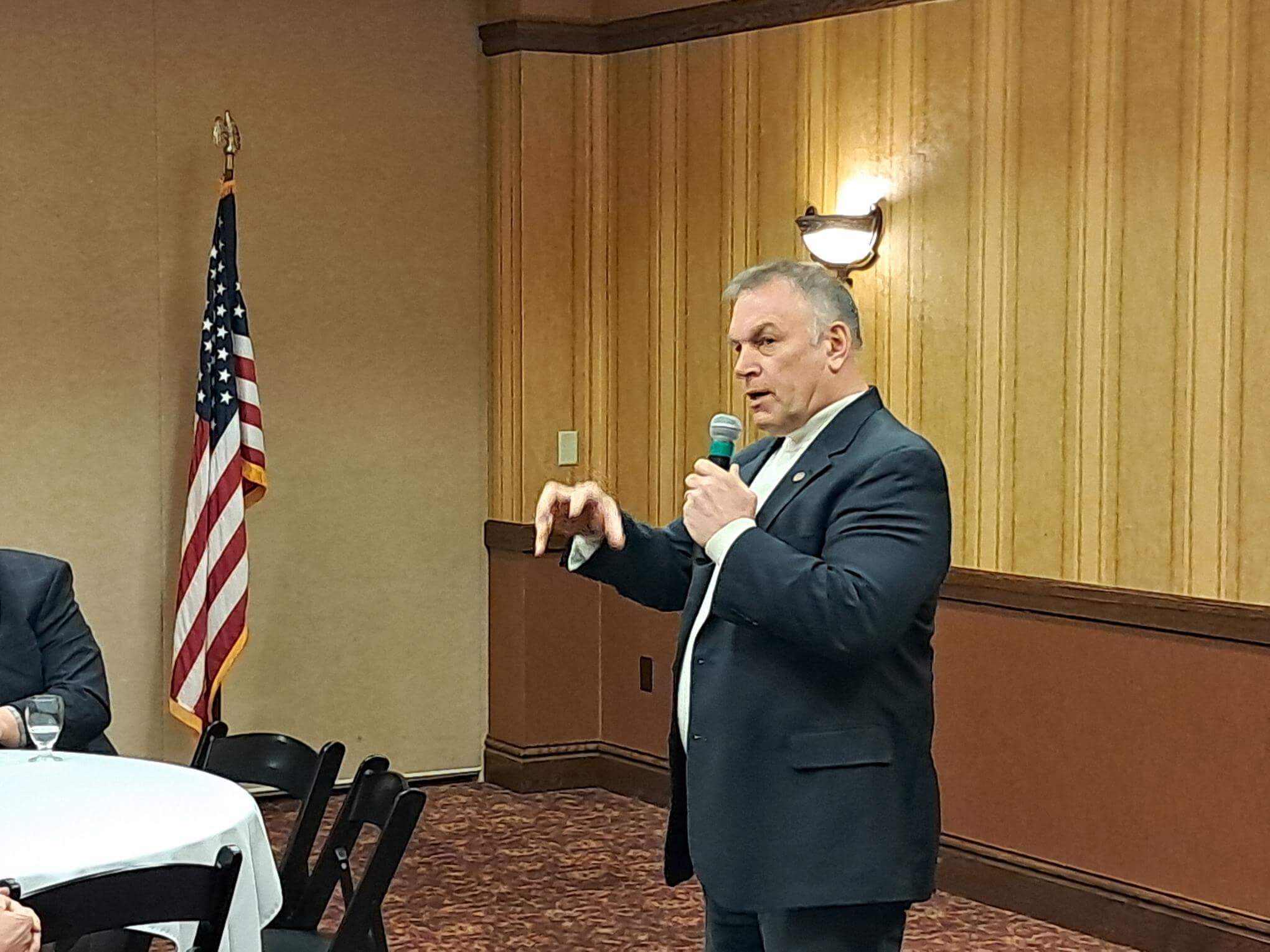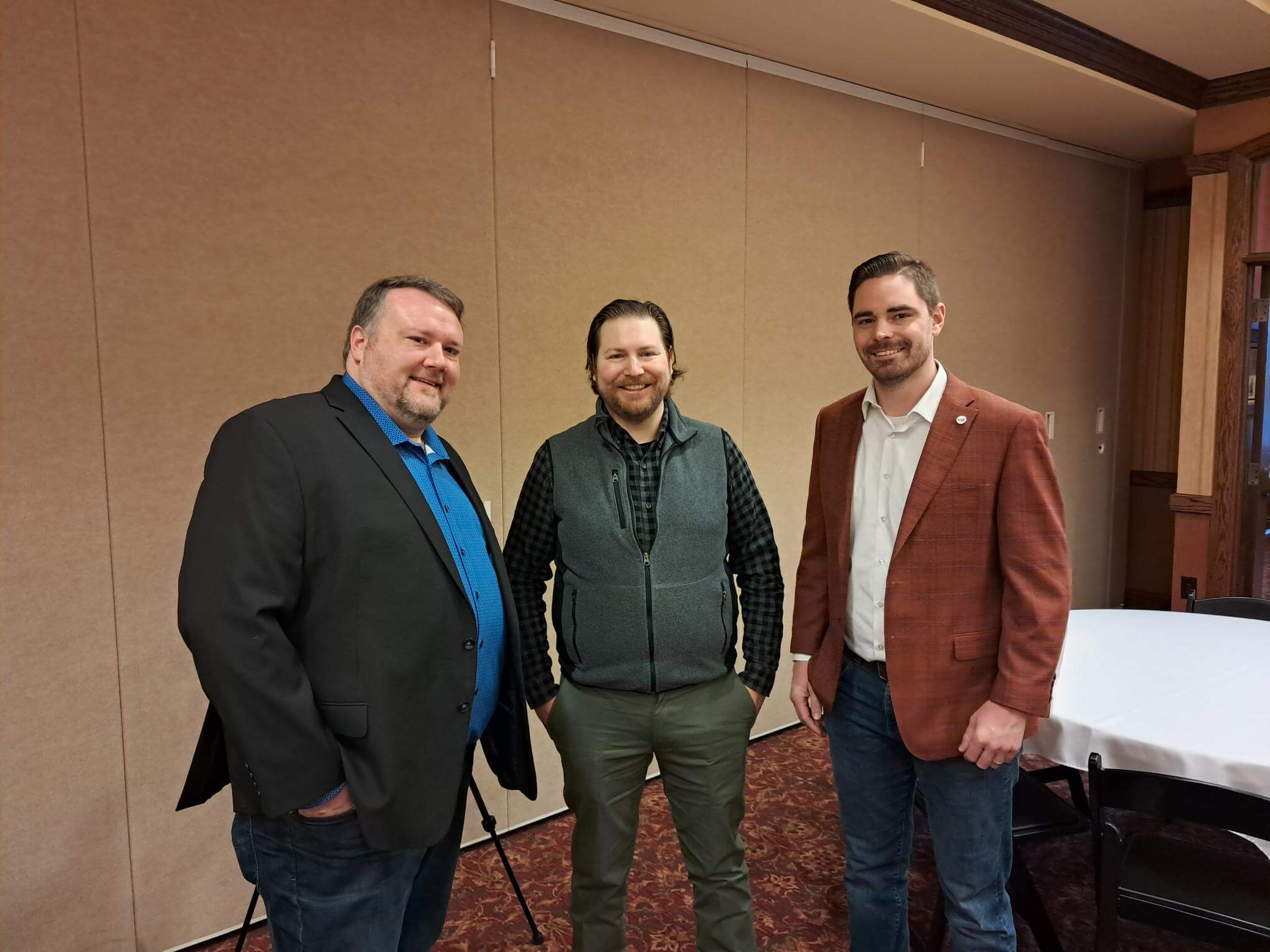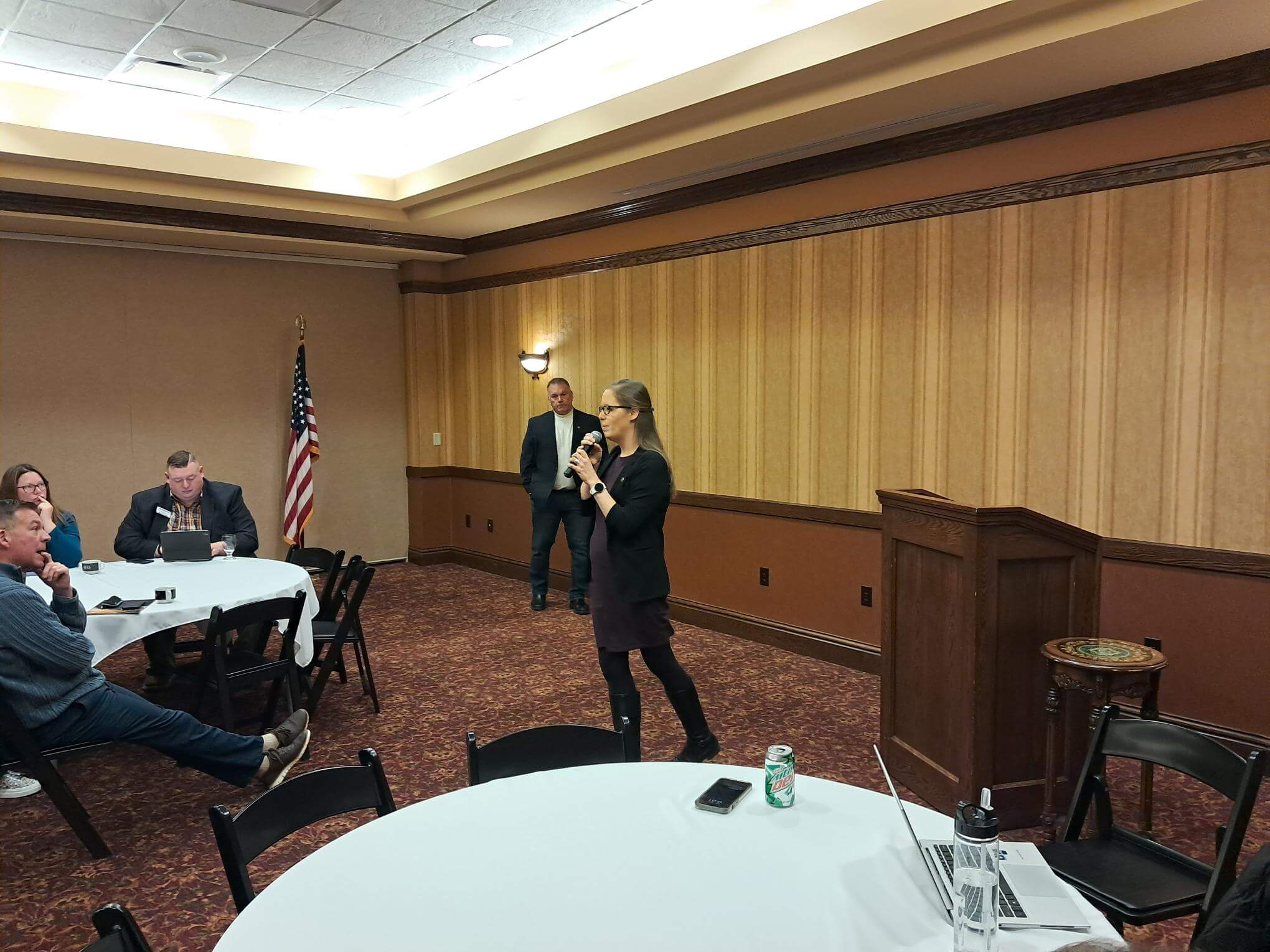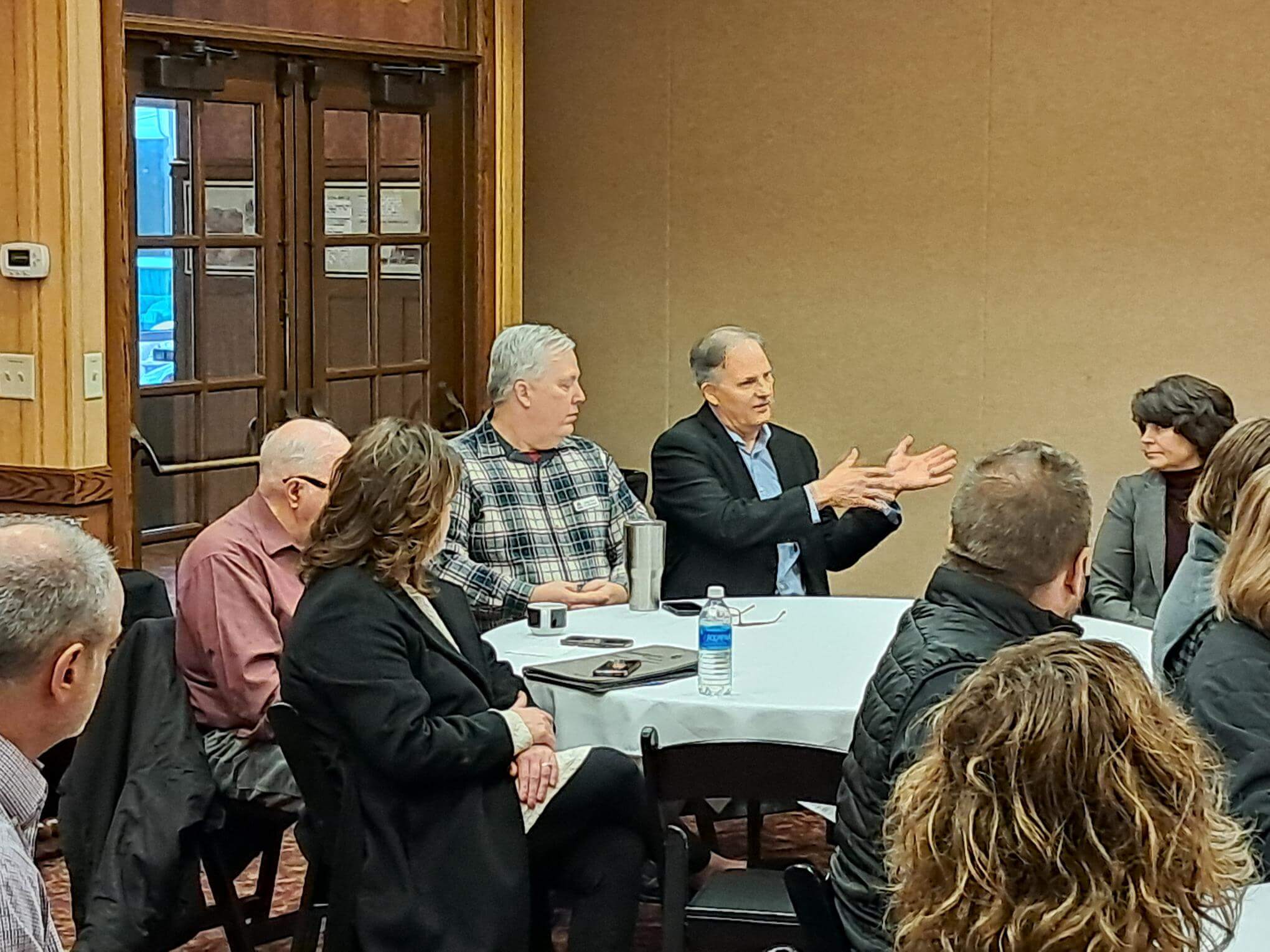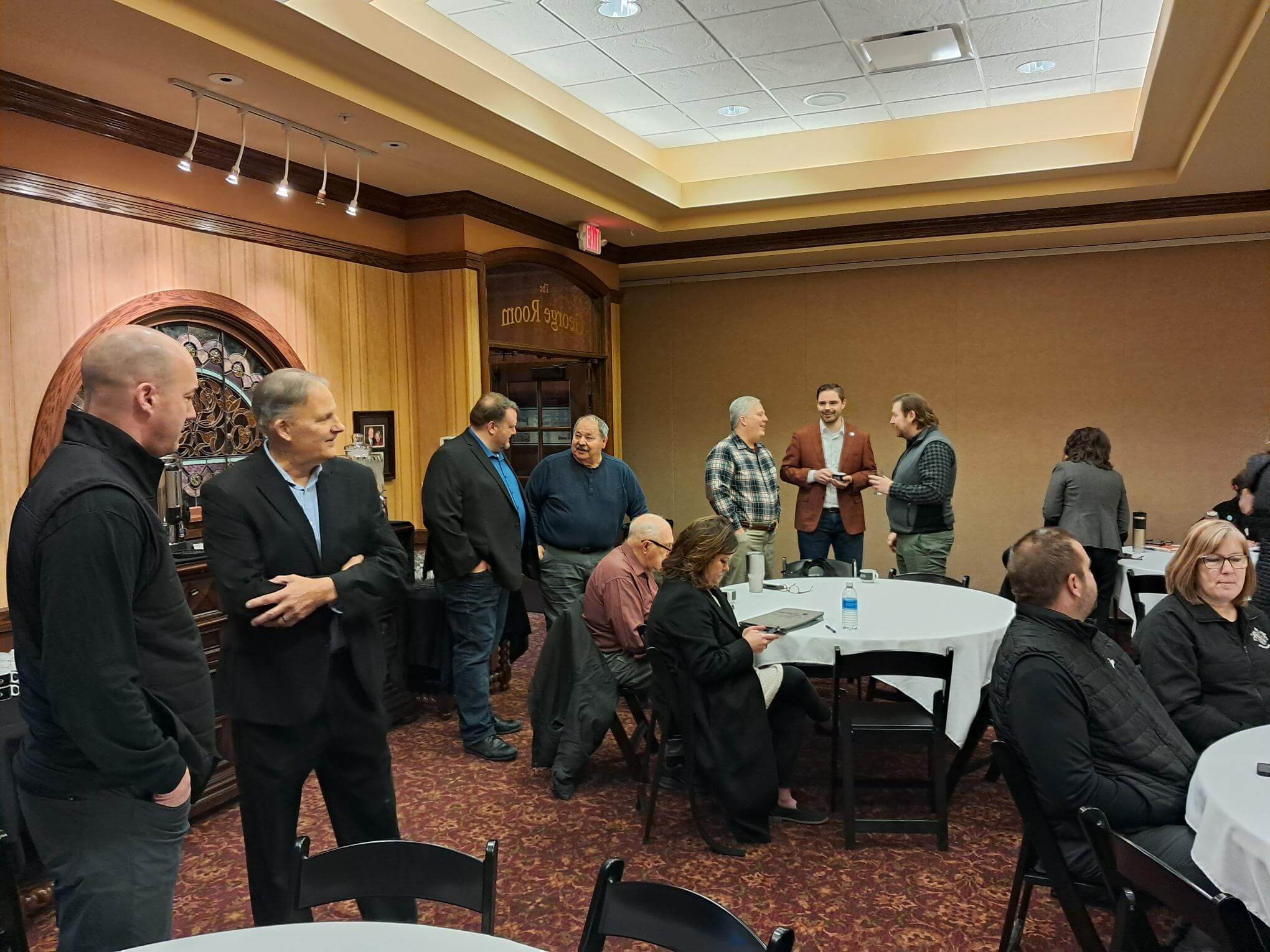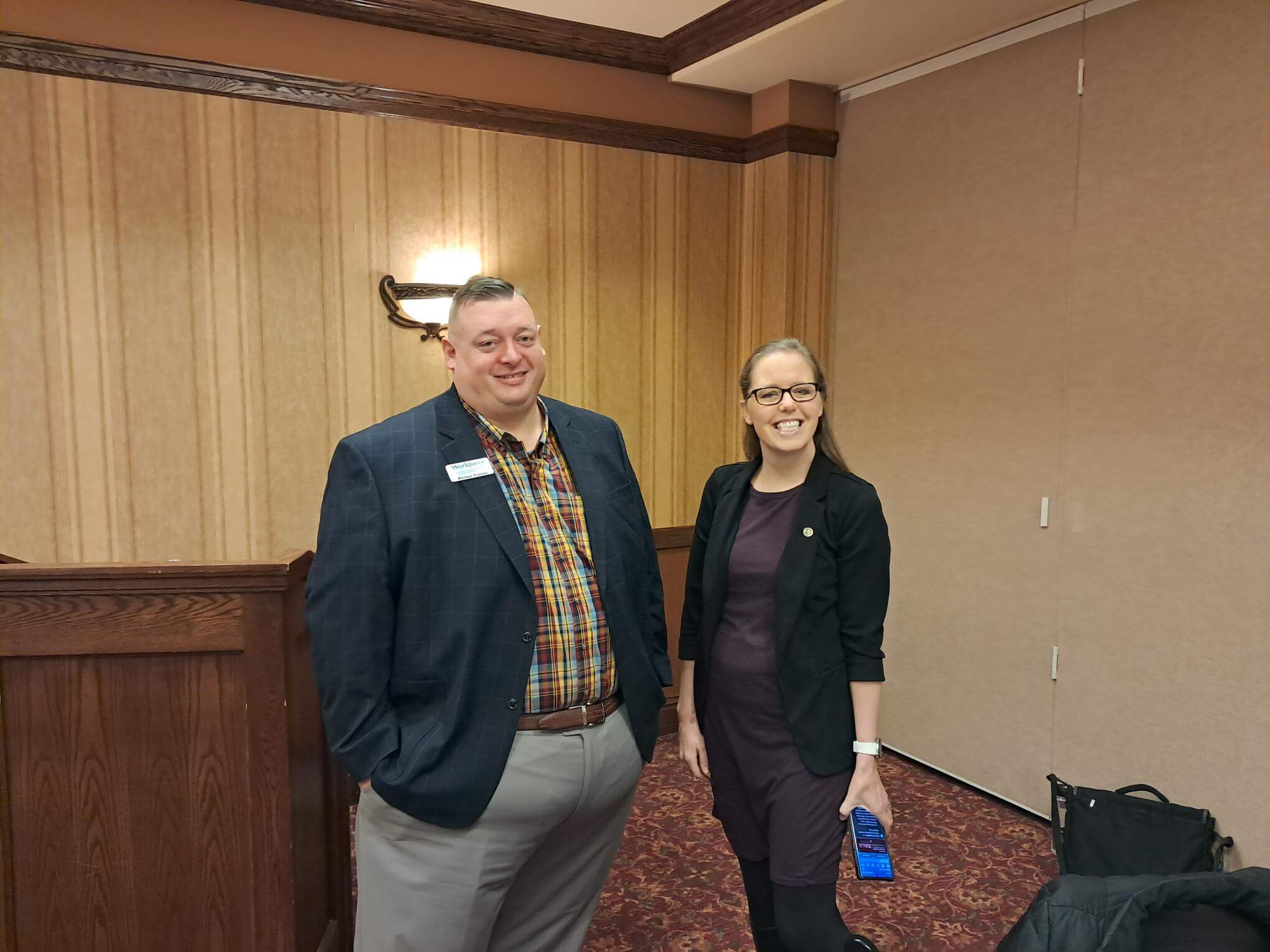
Minnesota Employers Speak Out: Chamber Hosts Listening Session on New Workforce Laws
The Austin Area Chamber of Commerce recently hosted a Southern Minnesota Listening Session with the Minnesota House Labor and Workforce Committee, providing local business leaders with an opportunity to voice their concerns about recent legislative changes impacting employers. The session focused on key workforce policies, including Earned Safe and Sick Time (ESST) and the Family Medical Leave Act (FMLA) while highlighting the broader economic impact these policies have on small and mid-sized businesses.
A Room Full of Leaders
The session brought together a diverse audience of stakeholders, including city council members, the mayor, county officials, and state legislators. Representative Patty Mueller set the stage, emphasizing the importance of bridging the gap between business and government. She acknowledged that many businesses have felt sidelined in recent legislative decisions and stressed the need for a stronger partnership between education and business to address workforce challenges.
Employers from industries ranging from manufacturing and government to retail and hospitality shared concerns about how these new policies affect their ability to operate efficiently and competitively. They emphasized the unintended consequences of rapid legislative changes and the need for greater collaboration before policies take effect.
Business Leaders Share Their Perspective
Chair David Baker, a longtime business owner in the hospitality industry, shared his firsthand experience navigating the complexities of Minnesota’s labor laws. Reflecting on the past few years, Baker described the challenges business owners have faced, noting that many felt blindsided by sweeping legislative changes.
“Representative Mueller was too kind to say that businesses only took it on the chin. No, we got our butts whipped the last two years,” Baker remarked, expressing frustration over what he sees as a lack of consideration for business realities in policymaking.
Baker underscored the impact of high taxes and regulatory hurdles, particularly for businesses operating near state borders. He highlighted the importance of maintaining Minnesota’s strong workforce while ensuring businesses remain competitive and viable. He also urged policymakers to balance employee protections with economic sustainability, ensuring that businesses can continue to thrive without being overburdened.
A Discussion on Paid Leave Policies
A major topic of discussion was paid family leave, a policy area where Baker sees room for improvement. While acknowledging the value of giving parents time with newborns and adopted children, he questioned the one-size-fits-all approach taken by the state. Baker advocated for private-sector solutions, such as short-term disability plans that allow employers to tailor benefits to their workforce rather than adopting rigid government-mandated programs.
“I didn’t want the state of Minnesota writing our HR policies because I don’t think that’s where they belong,” Baker stated, arguing for more flexibility in how businesses implement paid leave.
Several business owners echoed this sentiment, expressing concern about how the financial burden of paid leave mandates could strain small businesses that are already struggling with rising costs. Some suggested incentive-based programs that encourage businesses to offer leave voluntarily rather than imposing costly requirements across the board.
Navigating Earned Safe and Sick Time (ESST)
Another pressing issue was the rollout of Earned Safe and Sick Time (ESST), which many small businesses are still struggling to implement. Baker acknowledged that some employers are only now realizing the full extent of these regulations, despite them being enacted in 2024. He emphasized the need for greater communication and support to ensure businesses can comply without undue hardship.
Attendees also called for better guidance and training for employers to understand their obligations, with several noting that inconsistent enforcement and vague legal language make compliance challenging.
What’s Next?
With shifting political dynamics in Minnesota’s legislature, business leaders are hopeful that future policies will better reflect the realities of running a business. While acknowledging that some workforce protections are necessary, many attendees stressed the importance of collaborative policymaking that includes employer input from the start.
The Chamber is committed to keeping the conversation going. We will continue to advocate for employer-friendly policies and work with legislators to ensure that business perspectives are heard.
What Can You Do?
If you’re a local business owner impacted by these changes, we encourage you to stay engaged. Reach out to your representatives, participate in Chamber-hosted discussions, and share your experiences so we can amplify your voice. Your input shapes the future of business policy in Minnesota.
Stay tuned for more updates as we continue to navigate these important workforce changes.


